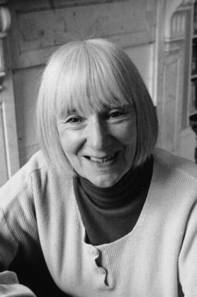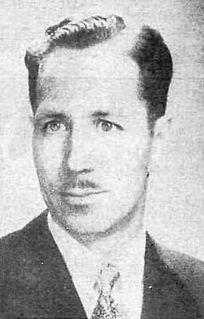A Quote by Eva Ibbotson
Loneliness had taught Harriet that there was always someone who understood - it was just so often that they were dead, and in a book.
Related Quotes
Luckily, I remembered something Malcolm Cowley had taught us at Stanford - perhaps the most important lesson a writing class (not a writer, understand, but a class) can ever learn. 'Be gentle with one another's efforts,' he often admonished us. 'Be kind and considerate with your criticism. Always remember that it's just as hard to write a bad book as it is to write a good book.'
I was brought up by a Victorian Grandmother. We were taught to work jolly hard. We were taught to prove yourself; we were taught self reliance; we were taught to live within our income. You were taught that cleanliness is next to Godliness. You were taught self respect. You were taught always to give a hand to your neighbour. You were taught tremendous pride in your country. All of these things are Victorian values. They are also perennial values. You don't hear so much about these things these days, but they were good values and they led to tremendous improvements in the standard of living.
I am writing this book because we're all going to die - In the loneliness of my own life, my father dead, my brother dead, my mother faraway, my sister and my wife far away, nothing here but my own tragic hands that once were guarded by a world, a sweet attention, that now are left to guide and disappear their own way into the common dark of all our deaths, sleeping in me raw bed, alone and stupid: with just this one pride and consolation: my broke heart in the general despair and opened up inwards to the Lord, I made a supplication in this dream
Have you taught a Sunday School class and felt when you finished that you had really taught someone some principle of the gospel that had really helped him or given him a brighter look on life? Remember the feeling of peace and joy that followed? Have you ever taught someone the gospel and received that feeling of joy because he had accepted what you had been teaching? The thrill of missionary work!
When children feel understood, their loneliness and hurt diminish. When children are understood, their love for their parent is deepened. A parent's sympathy serves as emotional first aid for bruised feelings. When we genuinely acknowledge a child's plight and voice her disappointment, she often gathers the strength to face reality.
And at the time, for one of the few times in my life I didn't have a band, I just had myself and the guitar, so I was going to have to do something with just my voice, just the guitar and just my songs that was going to move someone enough to give me a shot. So I wrote songs that were very lyrically alive and lyrically dense. And they were unique, but it really came out of the motivation to - or I understood it was - I was going to have to make my mark that way.
He looked at the book, took my name, and consulted his records. Then he informed me I had been lost at sea and was dead. Under the circumstances, he could not possibly give me any money... Even the fact that he was dealing with someone who had been dead for several days failed to awaken interest in his official heart.
However, the daily life of the slaves in the South, as observed by many travelers, was obscured for all time by the relentless promotion of a single book, Harriet Beecher Stowe's "Uncle Tom's Cabin." Even today, any black who dares to say that perhaps we are not as badly off as our brethren in the jungles of Africa is hooted down as an "Uncle Tom." [...] It was no accident that Harriet Beecher Stowe's book became the greatest best seller of its time - it was tirelessly promoted throughout the entire nation, in the most successful book promotion campaign in our history.







































